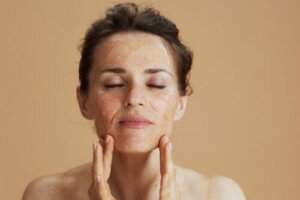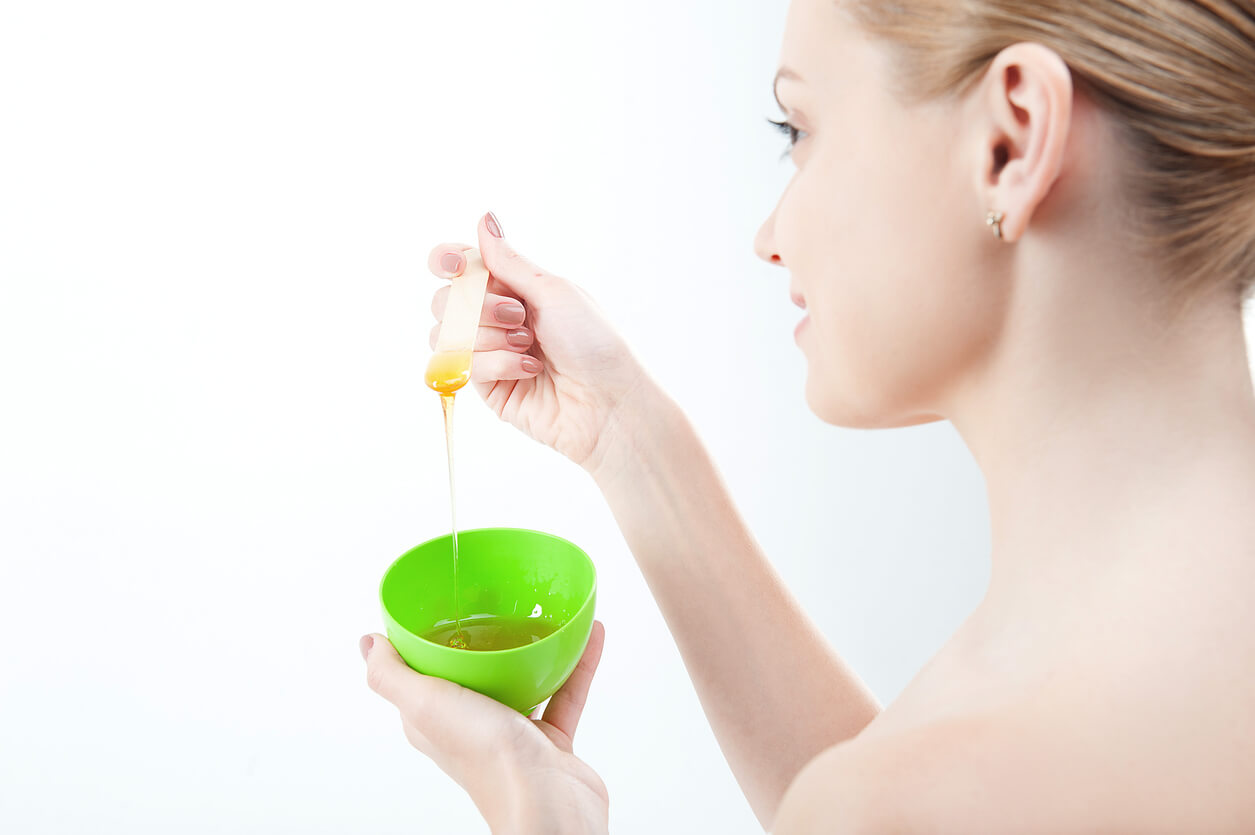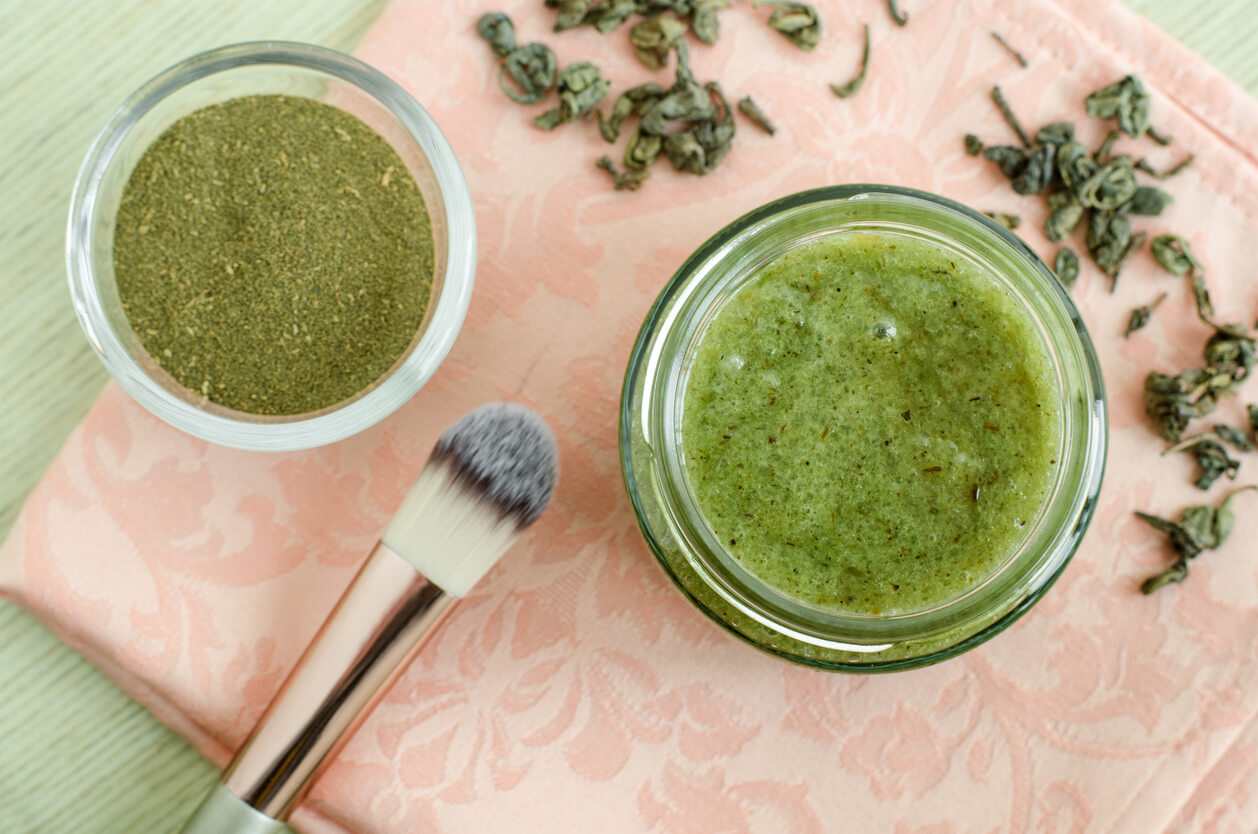10 Homemade Exfoliating Scrubs for Skincare During Pregnancy


Written and verified by the dermatologist Maria del Carmen Hernandez
Exfoliation during pregnancy
Exfoliation is based on the removal of dead cells and impurities found in the most superficial layers of the skin surface. In addition, they provide luminosity and smoothness to the skin of pregnant women, which is one of the many organs that suffer alterations during this stage. Hormonal changes cause greater secretion of the sebaceous glands and immunity is suppressed to protect the baby.
Therefore, the skin is more vulnerable and can develop hyperpigmentation in different regions of the body or dermatitis and irritations. Due to this susceptibility, choosing the right type of treatment to be performed is very important. In this regard, it’s best to avoid peelings with acids or solutions and to opt for natural products.
Read also: 10 Interesting Facts About Your Skin When You’re Pregnant
Homemade exfoliating scrubs during pregnancy
In most cases, skin care products are developed from plants. There’s a tendency to believe that if a product can be safely ingested, it’ll also be safe to apply topically. However, this isn’t the case. There are certain products that aren’t suitable for the skin, let alone pregnant women’s skin.
Aloe vera facial scrub
The aloe vera plant has regenerative properties. That is, it contributes to the renewal of the epidermis and the elimination of dead surface cells. It tends to soften the pores and control sebum on the skin’s surface.

Honey facial mask, one of the most used home exfoliants during pregnancy
Honey removes the layer of dead cells without acting abrasively and without modifying the acid layer of the skin. It also has soothing properties to reduce inflammation and natural antibacterial properties.
Strawberry body scrub
This type of scrub is rich in vitamin C and antioxidants that delay aging. Even at the end of the procedure, the skin will look smoother and brighter. In addition, it reduces inflammation, acts as a natural tonic, and removes dead surface cells.
Rosehip oil
Rosehip oil exfoliation helps to reduce dullness in the skin and provides a shiny, radiant surface. This function is due to its high vitamin A and vitamin C content, which renews skin cells and increases overall radiance.
Oatmeal scrub
Oatmeal-based scrubs help to smooth the skin’s surface thanks to the action of beta-glucan. This compound has soothing and anti-inflammatory properties. This scrub is recommended for bath time.
Avocado mask
Avocado is one of the plants with the greatest natural moisturizing power. Not only is it rich in healthy fats, but it’s also a great source of vitamin C and vitamin E. All of which, can help accelerate skin repair and improve chronic conditions such as eczema and acne.
Homemade green tea exfoliating scrubs for pregnancy
Green tea has anti-inflammatory and antioxidant effects due to the fact that it eliminates free radicals. There’s even evidence that it provides a photoprotective effect and reduces DNA damage formed after UV radiation.
Read also: Facial Cleansing Routine for Pregnant Women

Salt mask
Sea salt peels help to remove excess sebum from the skin’s surface. They also have a detoxifying effect by absorbing the toxins that cause acne. These masks are highly rich in minerals, which produce positive alterations in the skin, such as hydration and circulation.
Homemade sugar scrub
Due to the rough texture of sugar crystals, the use of this type of scrub should be avoided in areas where there are wounds, irritation, and rashes. It should be noted that brown sugar is the finest and least abrasive, followed by regular granulated sugar, which also works well; and organic sugar is the coarsest.
10. Coffee scrub
The tiny, abrasive particles in coffee remove dead skin cells and impurities from the outermost layer of the skin. Therefore, this contributes to faster regeneration of the skin and a smoother appearance. After the procedure, a moisturizing cream or oil for pregnant women should be applied.
Homemade exfoliating scrubs allow you to have ideal skin during pregnancy
Exfoliation during pregnancy
Exfoliation is based on the removal of dead cells and impurities found in the most superficial layers of the skin surface. In addition, they provide luminosity and smoothness to the skin of pregnant women, which is one of the many organs that suffer alterations during this stage. Hormonal changes cause greater secretion of the sebaceous glands and immunity is suppressed to protect the baby.
Therefore, the skin is more vulnerable and can develop hyperpigmentation in different regions of the body or dermatitis and irritations. Due to this susceptibility, choosing the right type of treatment to be performed is very important. In this regard, it’s best to avoid peelings with acids or solutions and to opt for natural products.
Read also: 10 Interesting Facts About Your Skin When You’re Pregnant
Homemade exfoliating scrubs during pregnancy
In most cases, skin care products are developed from plants. There’s a tendency to believe that if a product can be safely ingested, it’ll also be safe to apply topically. However, this isn’t the case. There are certain products that aren’t suitable for the skin, let alone pregnant women’s skin.
Aloe vera facial scrub
The aloe vera plant has regenerative properties. That is, it contributes to the renewal of the epidermis and the elimination of dead surface cells. It tends to soften the pores and control sebum on the skin’s surface.

Honey facial mask, one of the most used home exfoliants during pregnancy
Honey removes the layer of dead cells without acting abrasively and without modifying the acid layer of the skin. It also has soothing properties to reduce inflammation and natural antibacterial properties.
Strawberry body scrub
This type of scrub is rich in vitamin C and antioxidants that delay aging. Even at the end of the procedure, the skin will look smoother and brighter. In addition, it reduces inflammation, acts as a natural tonic, and removes dead surface cells.
Rosehip oil
Rosehip oil exfoliation helps to reduce dullness in the skin and provides a shiny, radiant surface. This function is due to its high vitamin A and vitamin C content, which renews skin cells and increases overall radiance.
Oatmeal scrub
Oatmeal-based scrubs help to smooth the skin’s surface thanks to the action of beta-glucan. This compound has soothing and anti-inflammatory properties. This scrub is recommended for bath time.
Avocado mask
Avocado is one of the plants with the greatest natural moisturizing power. Not only is it rich in healthy fats, but it’s also a great source of vitamin C and vitamin E. All of which, can help accelerate skin repair and improve chronic conditions such as eczema and acne.
Homemade green tea exfoliating scrubs for pregnancy
Green tea has anti-inflammatory and antioxidant effects due to the fact that it eliminates free radicals. There’s even evidence that it provides a photoprotective effect and reduces DNA damage formed after UV radiation.
Read also: Facial Cleansing Routine for Pregnant Women

Salt mask
Sea salt peels help to remove excess sebum from the skin’s surface. They also have a detoxifying effect by absorbing the toxins that cause acne. These masks are highly rich in minerals, which produce positive alterations in the skin, such as hydration and circulation.
Homemade sugar scrub
Due to the rough texture of sugar crystals, the use of this type of scrub should be avoided in areas where there are wounds, irritation, and rashes. It should be noted that brown sugar is the finest and least abrasive, followed by regular granulated sugar, which also works well; and organic sugar is the coarsest.
10. Coffee scrub
The tiny, abrasive particles in coffee remove dead skin cells and impurities from the outermost layer of the skin. Therefore, this contributes to faster regeneration of the skin and a smoother appearance. After the procedure, a moisturizing cream or oil for pregnant women should be applied.
Homemade exfoliating scrubs allow you to have ideal skin during pregnancy
All cited sources were thoroughly reviewed by our team to ensure their quality, reliability, currency, and validity. The bibliography of this article was considered reliable and of academic or scientific accuracy.
- Elmets CA, Singh D, Tubesing K, Matsui M, Katiyar S, Mukhtar H. Cutaneous photoprotection from ultraviolet injury by green tea polyphenols. J Am Acad Dermatol. 2001 Mar;44(3):425-32. doi: 10.1067/mjd.2001.112919. PMID: 11209110.
- Mandal, M. D., & Mandal, S. (2011). Honey: its medicinal property and antibacterial activity. Asian Pacific journal of tropical biomedicine, 1(2), 154–160. https://doi.org/10.1016/S2221-1691(11)60016-6
- Telang P. S. (2013). Vitamin C in dermatology. Indian dermatology online journal, 4(2), 143–146. https://doi.org/10.4103/2229-5178.110593
- Evans, J. A., & Johnson, E. J. (2010). The role of phytonutrients in skin health. Nutrients, 2(8), 903–928. https://doi.org/10.3390/nu2080903
- Mármol, Inés; Sánchez-de-Diego, Cristina; Jiménez-Moreno, Nerea; Ancín-Azpilicueta, Carmen; Rodríguez-Yoldi, María J. 2017. “Therapeutic Applications of Rose Hips from Different Rosa Species” Int. J. Mol. Sci. 18, no. 6: 1137. https://doi.org/10.3390/ijms18061137
This text is provided for informational purposes only and does not replace consultation with a professional. If in doubt, consult your specialist.








